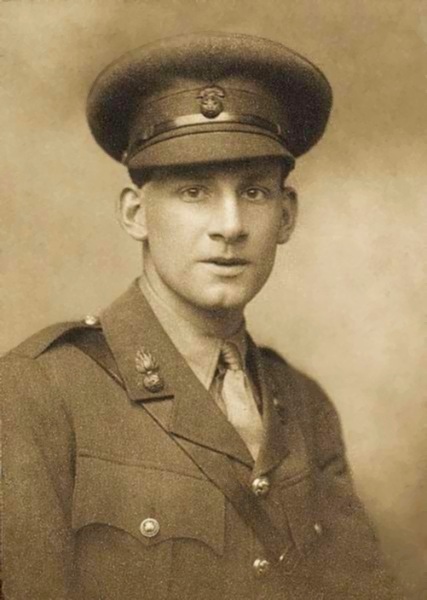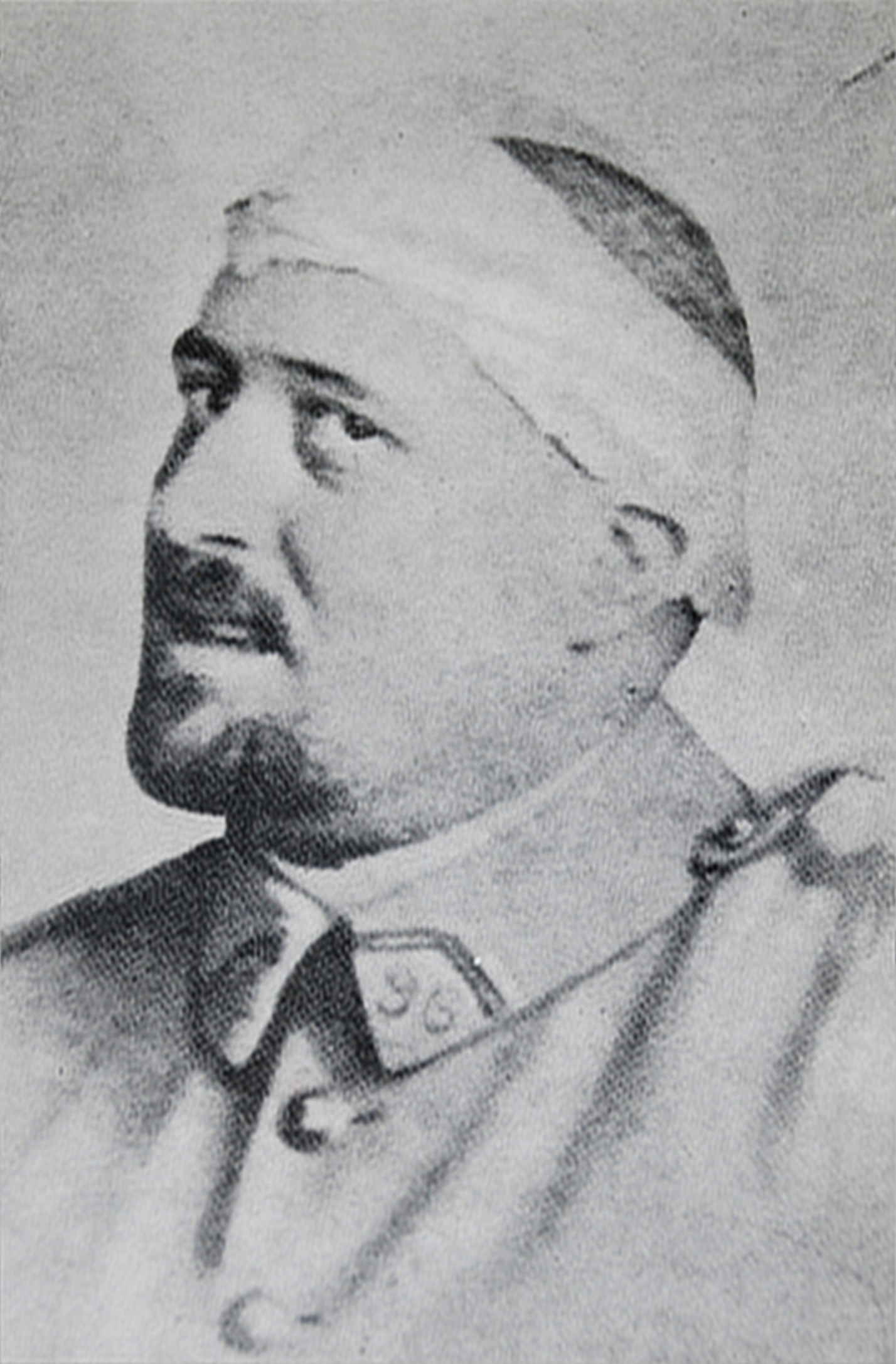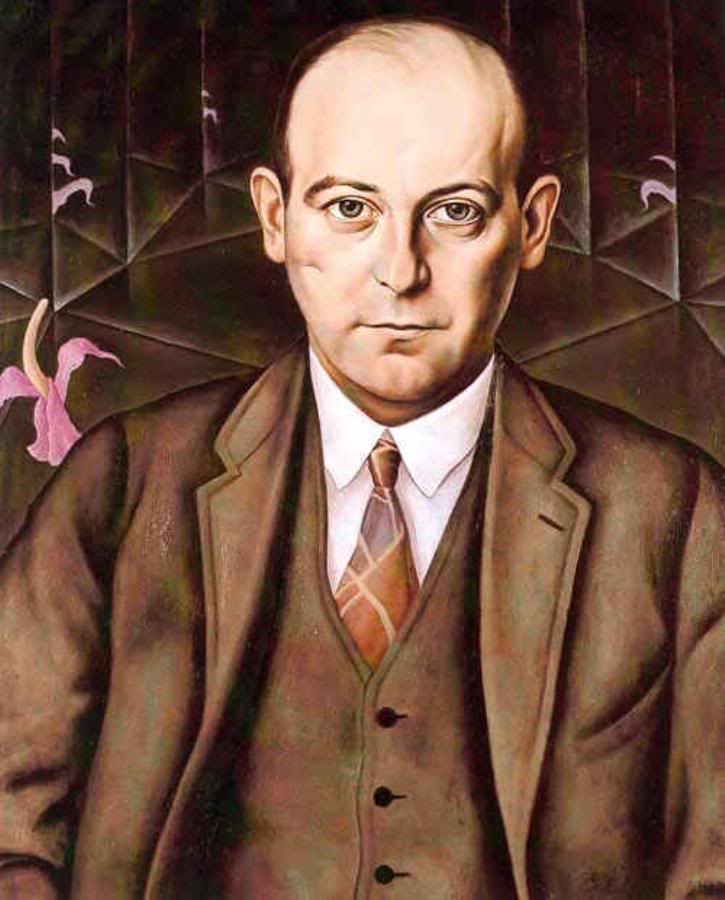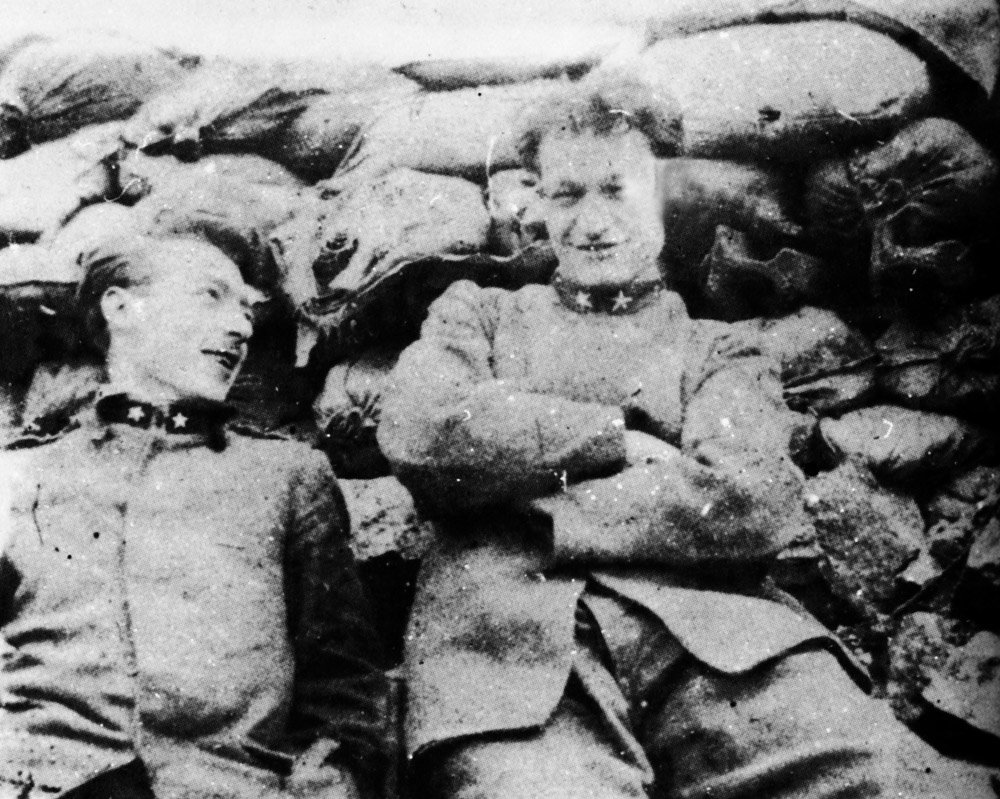In Stimmen aus den Schützengräben #11 we deal again with War Poetry. The first guest of the episode is Siegfried Sassoon, a British soldier who belongs to the so-called „War Poets„. WWI British war poetry is regarded either as a genre on its own or as a subgenre belonging to the so-called Georgian poetry. The authors – young soldiers and officers fighting on the Western front – used to send their verses to newspapers, and some of their work was thus well-known by the public. In 1985 a memorial was unveiled at the Poet’s Corner in Westminster Abbey. It bears the names of 16 poets, many of whom died in battle. Siegfried Sassoon served as second lieutenant and managed to survive the war.
„They„
The Bishop tells us: ‚When the boys come back
‚They will not be the same; for they’ll have fought
‚In a just cause: they lead the last attack
‚On Anti-Christ; their comrades‘ blood has bought
‚New right to breed an honourable race,
‚They have challenged Death and dared him face to face.‘
‚We’re none of us the same!‘ the boys reply.
‚For George lost both his legs; and Bill’s stone blind;
‚Poor Jim’s shot through the lungs and like to die;
‚And Bert’s gone syphilitic: you’ll not find
‚A chap who’s served that hasn’t found some change.
‚ And the Bishop said: ‚The ways of God are strange!‘

Guillaume Apollinaire is a key figure in the cultural scene of early 20th century. In Paris he befriended the foremost intellectuals of his time, such as Pablo Picasso, Blaise Cendrars and Jean Cocteau. He also friends with Giuseppe Ungaretti, who later became the most influential Italian poet of his time. Apollinaire was born in Rome in 1880 from a Polish mother and an unknown father, but later moved to France and was living in Paris at the break of war. He volunteered for the army in December 1914 and served first in the 38th artilery regiment, then as second lieutenant in the 96th infantry regiment. In 1916 he received a severe head wound from a shrapnell, and could never fully recover. In 1918, still weakened, he contracted the Spanish Flu and died. His body was found on the 9th of November by his friend Ungaretti, who wanted to pay him a visit in Paris.
The life on the front left a deep trace in some of Apollinaire’s writings. The poet had a contraddictory vision of war, and managed to create astonishing metaphors from its dreadful images. In the selected poem, for exemple, he compares a shell – a beautiful shell – to a mimosa in bloom.

„Si je mourais là-bas“
Si je mourais là-bas sur le front de l’armée
Tu pleurerais un jour ô Lou ma bien-aimée
Et puis mon souvenir s’éteindrait comme meurt
Un obus éclatant sur le front de l’armée
Un bel obus semblable aux mimosas en fleur
Et puis ce souvenir éclaté dans l’espace
Couvrirait de mon sang le monde tout entier
La mer les monts les vals et l’étoile qui passe
Les soleils merveilleux mûrissant dans l’espace
Comme font les fruits d’or autour de Baratier
Souvenir oublié vivant dans toutes choses
Je rougirais le bout de tes jolis seins roses
Je rougirais ta bouche et tes cheveux sanglants
Tu ne vieillirais point toutes ces belles choses
Rajeuniraient toujours pour leurs destins galants
Le fatal giclement de mon sang sur le monde
Donnerait au soleil plus de vive clarté
Aux fleurs plus de couleur plus de vitesse à l’onde
Un amour inouï descendrait sur le monde
L’amant serait plus fort dans ton corps écarté
Lou si je meurs là-bas souvenir qu’on oublie
– Souviens-t’en quelquefois aux instants de folie
De jeunesse et d’amour et d’éclatante ardeur –
Mon sang c’est la fontaine ardente du bonheur
Et sois la plus heureuse étant la plus jolie
Ô mon unique amour et ma grande folie
30 janv. 1915, Nîmes.
The third selected author is Ludwig Bäumer (1888-1928). He took part in WWI as a non-commissioned officer and after the conflict developed strong anti-war ideals.

„Dämmerung im Graben„
Wir sind längst mehr als dreimal verleugnet. In unsern Gebärden
Fielen alle Sehnsüchte zusammen, alle die waren
In unsern Müttern und Vätern. Wir stehn vor unsern Bahren
Und fangen Tode auf, damit wir zu Ende werden.
Denn das ist unser Sinn: Wir sind Kinder einer Zucht ohne das Sträuben
Von Kindern gegen ihre Zucht. Stärkelos! Wir haben die Augen
Die im eigenen Gehirn wühlen und Schmerzen saugen.
Wir sind längst mehr als dreimal verleugnet
Und müssen mehr als einen Gott betäuben.
Uns ist keine Wiederkehr gesegnet und unserm Weinen kein Amen
Zärtlicher Munde, die einmal vor Süße brachen.
Unsere Mütter versagten,
Die uns beklagten:
Wir staunen über die, die den Weg der Mütter kamen.
Und das verläßt uns nicht. — — Vielleicht wenn wir einmal wissen,
Daß wir Kinder des Irrtums sind und darum Unverzeihliche der Zeit,
Vielleicht dann … Was? … Stärkelos … Ein Land bleicht weit,
Und viele fielen, und wir sehnen uns in reine Kissen.
(Bereitschaft 1. Februar 1916.)
The fourth „guest“ of the week is Wilfred Owen (1893-1918), another British war poet. Owen served as a second lieutenant and was severely wounded by a trench mortar round. He also suffered of „shell-shock“ (PSTD), a condition that was not fully understood at the time. Owen was killed in action a week before the end of the war. The selected poem is probably Owen’s best known, and one of the most significant among British war poetry.

„Dulce et Decorum est„
Bent double, like old beggars under sacks,
Knock-kneed, coughing like hags, we cursed through sludge,
Till on the haunting flares we turned our backs
And towards our distant rest began to trudge.
Men marched asleep. Many had lost their boots
But limped on, blood-shod. All went lame; all blind;
Drunk with fatigue; deaf even to the hoots
Of tired, outstripped Five-Nines that dropped behind.
Gas! Gas! Quick, boys!–An ecstasy of fumbling,
Fitting the clumsy helmets just in time;
But someone still was yelling out and stumbling
And flound’ring like a man in fire or lime…
Dim, through the misty panes and thick green light,
As under a green sea, I saw him drowning.
In all my dreams, before my helpless sight,
He plunges at me, guttering, choking, drowning.
If in some smothering dreams you too could pace
Behind the wagon that we flung him in,
And watch the white eyes writhing in his face,
His hanging face, like a devil’s sick of sin;
If you could hear, at every jolt, the blood
Come gargling from the froth-corrupted lungs,
Obscene as cancer, bitter as the cud
Of vile, incurable sores on innocent tongues,–
My friend, you would not tell with such high zest
To children ardent for some desperate glory,
The old Lie: Dulce et decorum est
Pro patria mori.
The last poem of this episode is by Giuseppe Ungaretti (see episode #6). It was written on the 23th of December 1915 in northern Italy, on the Isonzo front. All along the war, 12 harsh battles were fought in the sector, with heavy losses on both sides. These few verses depict the contrast between the dead body lying next to him and the poet’s craving for life.

„Veglia„
Un’intera nottata
buttato vicino
a un compagno
massacrato
con la sua bocca
digrignata
volta al plenilunio
con la congestione
delle sue mani
penetrata
nel silenzio
ho scritto
lettere piene d’amore
Non sono mai stato
tanto
attaccato alla vita
-Credits-
Editing: Romana Stücklschweiger , Matteo Coletta.
Voices in this episode: David Hubble as Siegfried Sassoon and Wilfred Owen, Matteo Coletta as Guillaume Apollinaire and Giuseppe ungaretti, Hannes Hochwasser als Ludwig Bäumer
Jingle:
Music: Gregoire Lourme, “Fire arrows and shields”
Concept: Matteo Coletta
Voices: Hannes Hochwasser, Matteo Coletta, Roman Reischl, L.J. Ounsworth, Norbert K. Hund.
